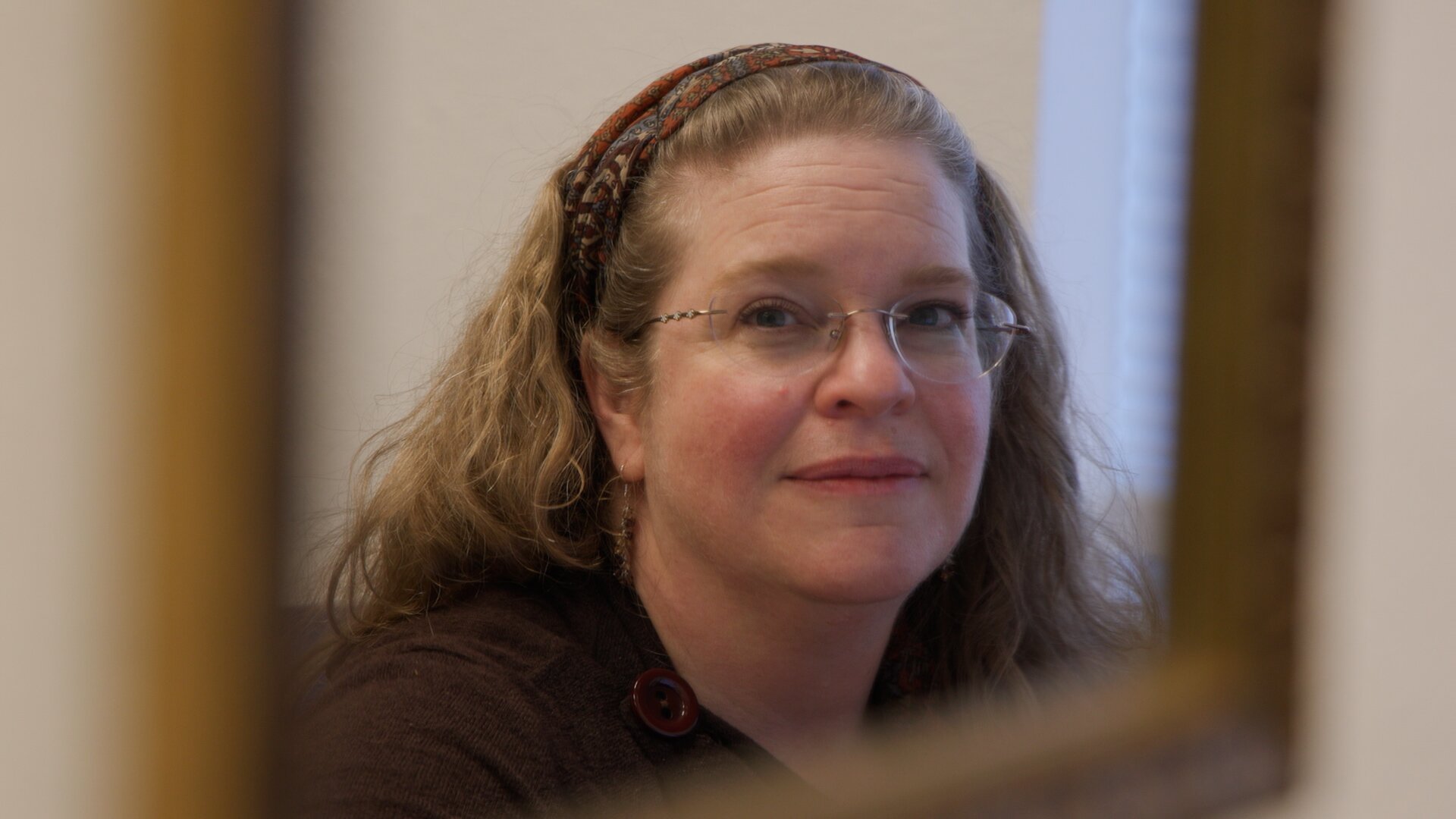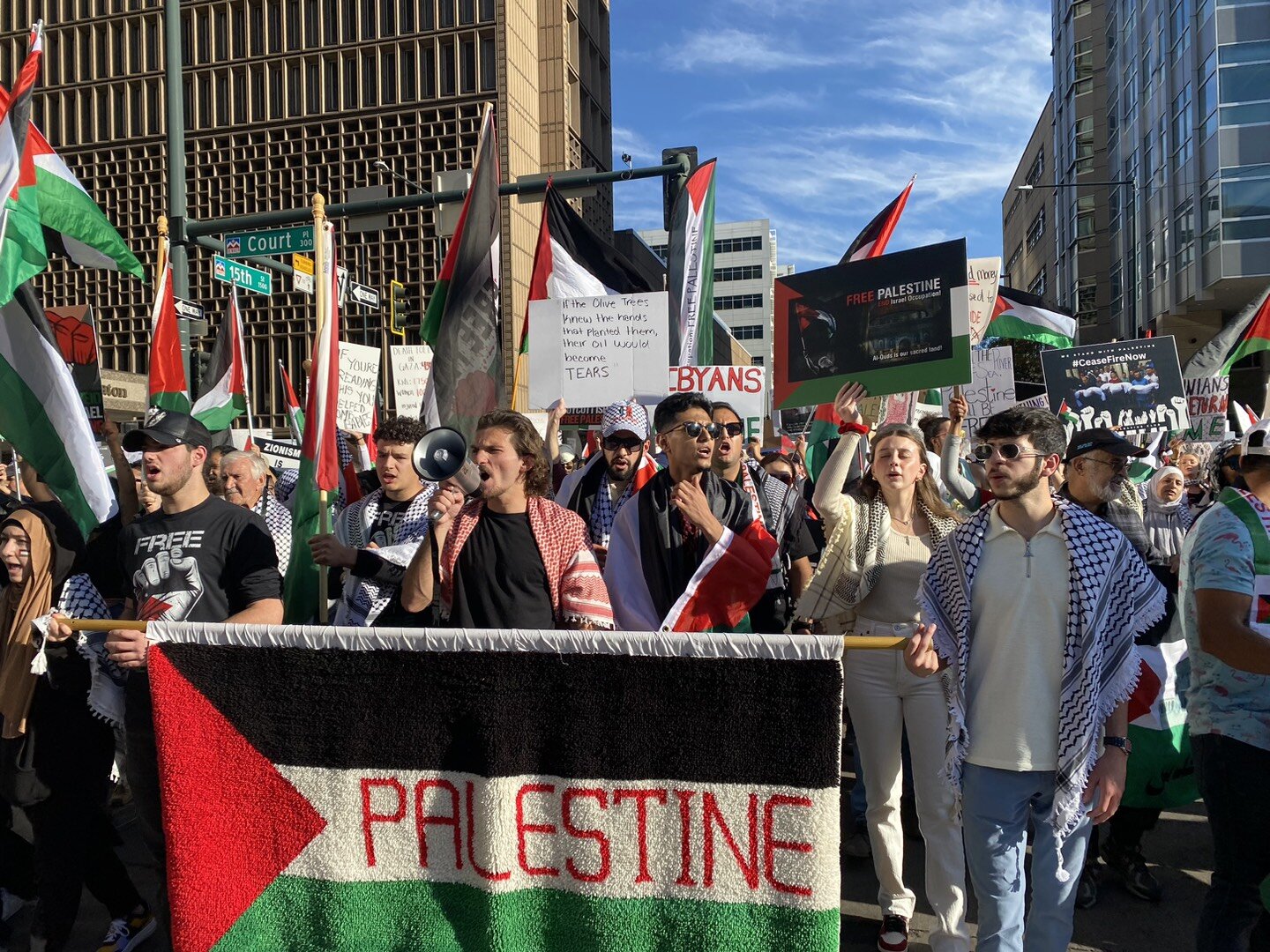Rabbi calls for compassion for Jews and Palestinians as Israel-Hamas war continues

DENVER — On October 7, Congregation B’nai Havurah was observing one of the most joyous Jewish holidays of the year, Simchat Torah, the celebration of the culmination and restart of the reading of the Torah, when they received news that armed Hamas militants infiltrated southern Israel. The organizers considered ending the festivities, where they were gathered together to sing and dance, but they made the difficult decision to continue.
“We took comfort and strength from each other,” said Rabbi Katie Mizrahi, who leads the Reconstructionist congregation, a denomination of Judaism that is known for its political and religious progressivism. “It's what I would call a defiant joy,” she said. “But it was hard to do in that moment.”
October 7 marked the deadliest day for Jews since the Holocaust. Hamas fighters broke through the Israel-Gaza border, killed 1,200 Israelis, most of them civilians, and took more than 240 hostages, according to the Israeli military.
Israel’s subsequent retaliation against Hamas has led to the killing of more than 11,000 Palestinians in Gaza, according to the Gaza Health Ministry. The United Nations also reports damage to thousands of buildings and a deepening humanitarian crisis. The war appears to have opened on other fronts, including the Lebanon-Israel border where the Iran-backed militant group Hezbollah and Israeli forces have been trading gunfire.
[Related: What is Gaza’s Ministry of Health and how does it calculate the war’s death toll?]
Within the Jewish community, feelings towards the war are mixed — including within Mizrahi’s own congregation.
“Many of our members are people who have been working for peace, working for a two-state solution, working for human rights for years and years,” she said.
“Those people in our community are really struggling right now.”
Mizrahi also says some of her members have close family and friends in Israel and are full of worry. “They have a stake in the safety of people living there.”
The synagogue says its focus right now is to bring comfort and a sense of belonging to the community.
“Even though they may not all agree politically about the right solution to the problem, being together itself and providing a space where people feel that they are connected is one way that we can help our people in this moment,” Mizrahi said.

Rabbi Katie Mizrahi of Denver’s B’nai Havurah Reconstructionist synagogue has lived in Israel on and off since the late 1990s. “The only news that rises into our awareness tends to be news around conflict, news around tragedy” she said. “I could see in my day to day life people who were fighting for the rights of Palestinians and Jews, people who were devoting their life energy to making things better. And all of that gets lost when you're far away.”
Photo: Andrea Kramar, Rocky Mountain PBS
With the world's eyes on Israel and Gaza, the public scrutiny has revived hate and violence against Jews, Arabs and Palestinians.
Scott Levin, the regional director of the Anti-Defamation League's mountain region said his office has reported a nearly 400% rise in antisemitic and virulent anti-Israel incidents since October 7 compared to the same period last year. Levin said his office typically receives five complaints a week but in October it was averaging more than 20 a week.
“This is just a dramatic jump that’s taken place,” Levin said. “People understandably are feeling very vulnerable.”
According to the ADL’s reported incidents, four synagogues across the state received antisemitic and harassing calls. In a separate incident, a man at a Boulder bar was yelled at for being Jewish and Israeli. The ADL also received reports of a Rabbi being heckled at a public meeting in Aurora. A person allegedly yelled, “We all know where you live Rabbi.”
Antisemitism was spiking in the U.S. before the Hamas attacks of October 7 and Israel’s campaign in Gaza. Reports of antisemitism were at an all-time high across the U.S. in 2022 — and reached the second highest level in more than a decade for the state of Colorado, according to the ADL.
Incidents of hate against Arab Americans are also on the rise. The Arab American Anti-Discrimination Committee (ADC) has reported a number of recent hate incidents targeting Palestinian Americans. Following a week's worth of death threats, a shooter sent bullets into the home of a Palestinian American family in Greenwood Village. Arab and Palestinian students have also expressed feeling unsafe and unsupported in school, according to the ADC.
Mizrahi is saddened by the polarization — and believes the rhetoric oversimplifies the situation and leaves little room for nuance or greater understanding.
“I think it's important to be a voice that holds Hamas accountable for its terror and that holds the Jewish state accountable for the way it wields its power,” she said.
“It is possible to hold in your heart care for those Palestinians who are dying in Gaza and care for those Israeli citizens who have died in this attack and who have been abducted,” she said.
“It’s not a zero sum game.”

Hundreds marched through Downtown Denver in late October calling for a ceasefire and a free Palestine amid the ongoing conflict between Israel and Hamas.
Photo: Alison Berg, Rocky Mountain PBS
Mizrahi and other leaders of the Jewish community are planning to hold a dialogue with leaders of nearby Arab and Palestinian communities in the coming weeks.
“We need to expand our capacity to listen across conflict, to open our hearts to compassion, not just for the people who are suffering in our own communities, but also to see the humanity of those who are on the other side,” she said.
Mizrahi will also be holding a second listening session for members of her own congregation to express their thoughts and feelings on the conflict in a safe and sacred space.
“If we ever want to get out of this, if we ever want to move beyond cycles of revenge and violence and conflict, we're going to have to see the humanity of our enemies,” she said.
“Hopefully this round of bloodshed will subside and we’ll be able to take a breath and have the resolve to make peace.”
Rocky Mountain PBS follows the guidance of PBS Newshour and the Associated Press in its coverage of the Israel-Hamas war. You can learn more about the standards here.
Andrea Kramar is an investigative multimedia journalist at Rocky Mountain PBS. You can reach Andrea at andreakramar@rmpbs.org.
For more information on Rocky Mountain PBS' editorial and coverage of Colorado communities affected by ongoing violence in the Middle East, please visit this link.